Speakers
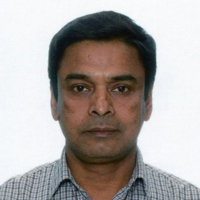
Prasanta Dhar
Prasanta Dhar is a doctoral candidate at the University of Toronto, Canada. His dissertation presents a methodological argument to global intellectual history. It argues that a globalized discourse cannot be dissociated from its circulatory infrastructure. To show how the material and the ideological content of the circulation of an idea begins, transforms, and perishes in tandem with the generation, reconfiguration and obsolescence of its infrastructure, his dissertation examines the global circulation of Marxism through one of its highly debated and intensely charged sites, Calcutta, India. It examines the 'associations' - the infrastructure of mediation - in the circulation of Marxism through Calcutta, to argue that the content of 'global' Marxism cannot be separated from the life cycles of these 'local' associations. Entering from that point, the dissertation engages with the larger questions of nationalism and internationalism, colonial and post-colonial imaginations of spaces and places like Calcutta, India, South Asia. At present, Prasanta is finalizing his dissertation for final submission. Prior to joining the PhD programme, he completed his B.A. from Calcutta University, following which he worked for the Government of India for more than a decade. He has been involved in the Group Theatre Movement of Calcutta for about two decades.
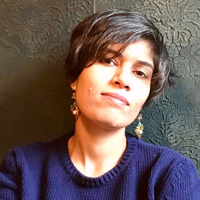
Pratishtha Singh
Pratishtha Singh is a Lecturer of Italian Language and Literature at the University of Delhi. She is an author, a poet and an opinion leader. She's in the process of finishing her doctoral thesis on the representation of Mussolini in Contemporary Italian literature. She has been a student and scholar of cinema in Italy and India which explains her being the jury of Asolo Art Film Festival in Italy since 2009 and Environmental Film Festival in Sao Paolo in Brazil since 2014. Last year, she was nominated the God Mother of the Asolo Art Film Festival. She has a keen interest in politics and has done an annual internship at the Indian Parliament, the Lok Sabha in 2010. She wrote and submitted a thesis at the Lok Sabha Secretariat on the Privileges of the Members of Parliament in India. She has worked extensively in Rajasthan and with women with the Rajiv Gandhi Foundation. In 2014, she managed the media and the women campaign for Mohammad Azharuddin from Sawai Madhopur. In 2015, she travelled alone across Bihar during the assembly elections to talk to the women voters. Her travel experiences and conversations have recently been published in the form of a Hindi and Bhojpuri book by Vani Prakashan. She writes for many reputed newspapers and journals. She was recently invited by the Nobel Laureate Mo Yan to represent India in the BRICS Literature Forum at Beijing University.
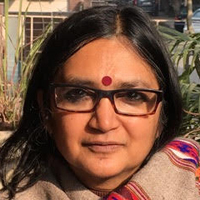
Ramaa Vasudevan
Ramaa Vasudevan is an Associate Professor at the Department of Economics, Colorado State University. Her Ph.D. in Economics from New School University, New York, focused on the political economy of international trade and finance, while her M.Phil at the Centre for Development Studies, Trivandrum, India was a study about the evolution of labor markets in colonial India. Her main research interests are in international financial systems, open economy macroeconomics and the political economy of money and finance. Her work has been published in Cambridge Journal of Economics, Economic and Political Weekly, Journal of Economic Issues, Journal of Post-Keynesian Economics, Metroeconomica, Monthly Review, Review of Keynesian Economics, Review of Political Economy, Review of Radical Political Economics, and Structural Change and Economic Dynamics. She is the author of Things fall apart: From the crash of 2008 to the Great Slump, a structural and historically grounded analysis of the recent crisis and its aftermath. She is an Associate Editor of Review of Political Economy and a member of the Editorial Board of the Review of Radical Political Economics.
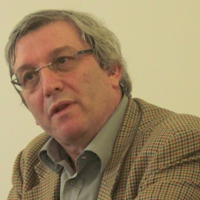
Riccardo Bellofiore
Riccardo Bellofiore is a Professor of Political Economy at the University of Bergamo, Italy. He teaches advanced macroeconomics, history of economic thought, and monetary economics. His research interests include capitalist contemporary economy, endogenous monetary approaches, Marxian theory and the philosophy of economics. Among his recent publications are: ‘Crisis Theory and the Great Recession: A Personal Journey, from Marx to Minsky’ (Research in Political Economy, 2011); and with Francesco Garibaldo and Mariana Mortagua, ‘A Credit-Money and Structural Perspective on the European Crisis: Why Exiting the Euro is the Answer to the Wrong Question’ (Review of Keynesian Economics, 2015). He has also recently co-edited with Giovanna Vertova, The Great Recession and the Contradictions of Contemporary Capitalism (Edward Elgar Publishing, 2014); with Scott Carter, Towards a New Understanding of Piero Sraffa. Insights from Archival Research (Palgrave Macmillan, 2014); with Guido Starosta and Peter Thomas, In Marx’s Laboratory. Critical Interpretations of the Grundrisse (Leiden, 2013); and with Ewa Karwowska and Jan Toporowski, two volumes in honour of Tadeusz Kowalik: The Legacy of Rosa Luxemburg, Oskar Lange and Michal Kalecki (Palgrave Macmillan, 2014) and Economic Crisis and Political Economy (Palgrave Macmillan, 2013). He has published/edited books on Marx, Luxemburg, Hans-Georg Backhaus, Alfred Schmidt, Hyman P. Minsky, Ludwig von Mises, Claudio Napoleoni, Federico Caffè, Globalisation and the conditions of labour, and the Tobin Tax.
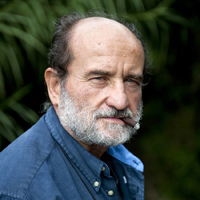
Roberto Massari
Roberto Massari graduated at Rome University in Philosophy, at Trento University in Sociology, at the Ismeo of Rome (Institute for Oriental studies) on India’s culture and language, at the Conservatorium of Perugia in piano. He published his first sociological research in 1966. Since then he has written more than 30 books (including 3 novels and a collection of his own poems). In 1968 he lived six months in Cuba as a guest of the Cuban government and since then he is studying Che Guevara and the Cuban revolution. Since 1998 he is president of the International Che Guevara Foundation (www.fondazioneguevara.it).As an industrial sociologist he has worked with some of the most outstanding scholars in the field: Franco Ferrarotti, Alessandro Pizzorno, Alain Touraine, Serge Mallet, Claude Durand and others. He is a founding member (Paris 1972) of the Association of Fourier’s Friends (still active in Besançon, France). In 1998 he founded a second publishing house (now Massarieditore [www.massarieditore.it ]) and to this he dedicates his life. In 2018 he hopes to finish the two books that he considers the most important in his life: one on Lenin and one on Jesus.
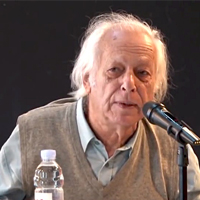
Samir Amin
Samir Amin is an Egyptian-French Marxian economist. He is noted for his introduction of the term Eurocentrism in 1988. From 1947 to 1957 he studied in Paris, gaining a Diploma in Political Science (1952) before graduating in Statistics (1956) and Economics (1957). In his autobiography, Itinéraireintellectuel (1990), he wrote that in order to spend a substantial amount of time in "militant action" he could devote only a minimum of time to preparing for his university exams. He was awarded the IbnRushd Prize for Freedom of Thought for the year 2009 in Berlin. His books include ‘Russia and the Long Transition from Capitalism to Socialism’.
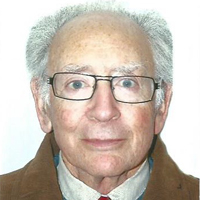
Samuel Hollander
Samuel Hollander was born in London in 1937 and attended LSE (BScEcon) and Princeton University (PhD). He served on the faculty of University of Toronto, Canada, from 1963 to 1998 and is currently a University Professor Emeritus at that institution. He is an Officer of the Order of Canada, a Fellow of the Royal Society of Canada and Honorary Fellow of the Canadian Economics Association. He holds an honorary Doctorate of Law from McMaster University, Ontario, Canada. After retirement he was Research Director at the Centre National de la RechercheScientifique of France (CNRS) in 1999-2000 and Visiting Professor at Ben Gurion University of the Negev, Israel in 2000-08. He is the author of books on Adam Smith, David Ricardo, J.S. Mill, T.R. Malthus, J.B. Say, Karl Marx and Friedrich Engels, a textbook on Classical Economics and four collections of essays. He is currently engaged on a study of Utilitarian Ethics in the eighteenth and nineteenth centuries.
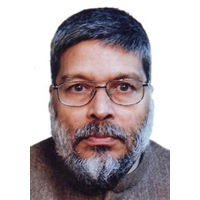
Satish Jain
Satish Jain is currently an Indian Council of Social Science Research National Fellow. He was on the faculty of the Jawaharlal Nehru University (JNU) during 1978–2013; and held the Reserve Bank of India Chair during 2011–13. He has authored Economic Analysis of Liability Rules (Springer, 2015); has edited Law and Economics (Oxford University Press, 2010), and co-edited Economic Growth, Efficiency, and Inequality (with Anjan Mukherji, Routledge, 2015.). His areas ofresearch interests are Social Choice Theory, and Law and Economics.
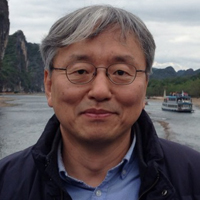
Seongjin Jeong
Seongjin Jeong is a Professor of Economics at Gyeongsang National University (Republic of Korea) and the founding Editor of MARXISM 21 since 2004. His research interests include empirical Marxian economic analysis of the Korean economy, ideas of alter-globalization movements, modeling of alternative socio-economic systems. Among his edited and authored volumes there are: [with Martin Hart-Landsberg and Richard Westra] Marxist Perspectives on South Korea in the Global Economy (Routledge, 2016); [with Richard Westra and Robert Albritton] Varieties of Alternative Economic Systems: Practical Utopias for an Age of Global Crisis and Austerity (Routledge, 2017), [with Masao Ishikura and Minqi Li] Return of Marxian Macro-dynamics in East Asia, Research in Political Economy, Volume 32 (Emerald, 2017).
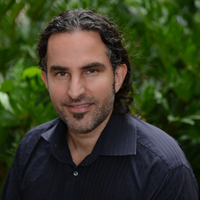
Shannon Brincat
Shannon Brincat is a Senior Lecturer in Politics and International Relations at the University of the Sunshine Coast, Australia. His research focuses on international relations theory; recognition and cosmopolitanism; dialectics; tyrannicide; climate change justice; and Marxism & Critical Theory. His most recent manuscript, The Spiral World, has traced dialectical thinking between the Axial Age and the Medieval World. He has been the editor of a number of collections, most recently From International Relations to World Civilizations: The contributions of Robert W. Cox; Dialectics and World Politics; Recognition, Conflict and the Problems of Ethical Community; and the three volume series Communism in the Twenty-First Century. He is the co-founder and co-editor of the journal Global Discourse and helps run the Queensland School of Philosophy.
